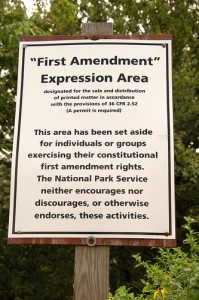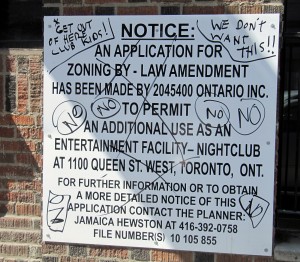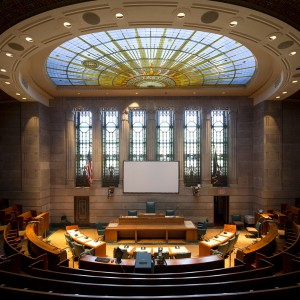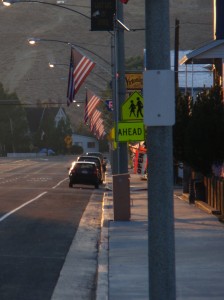Eighth Circuit: Restricting Bible Distribution During Festival Likely Violates First Amendment
Posted
16 Sep 2013 in Case Notes
[caption id="attachment_107" align="alignright" width="199"] 8th Circuit: Park did not adequately justify the need to limit literature distribution[/caption]
An evangelical Christian, Brian Johnson, sought to distribute Bibles at a gay-pride festival in a public park.
The park board would not allow it.
It had adopted a policy limiting literature distribution to confined areas, due to security concerns and the festival’s size.
Johnson claimed the policy violated the First Amendment, and sought an injunction barring its enforcement. In a 2-1 decision released Wednesday, Johnson v. Minneapolis Park and Recreation Bd., the Eighth Circuit ruled that Johnson would likely prevail on his claim.
8th Circuit: Park did not adequately justify the need to limit literature distribution[/caption]
An evangelical Christian, Brian Johnson, sought to distribute Bibles at a gay-pride festival in a public park.
The park board would not allow it.
It had adopted a policy limiting literature distribution to confined areas, due to security concerns and the festival’s size.
Johnson claimed the policy violated the First Amendment, and sought an injunction barring its enforcement. In a 2-1 decision released Wednesday, Johnson v. Minneapolis Park and Recreation Bd., the Eighth Circuit ruled that Johnson would likely prevail on his claim.






